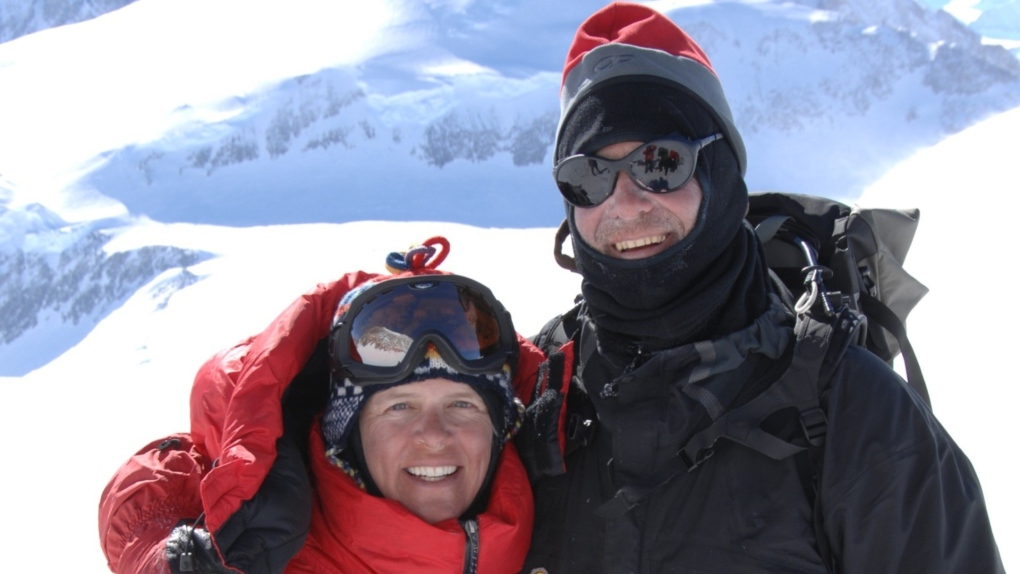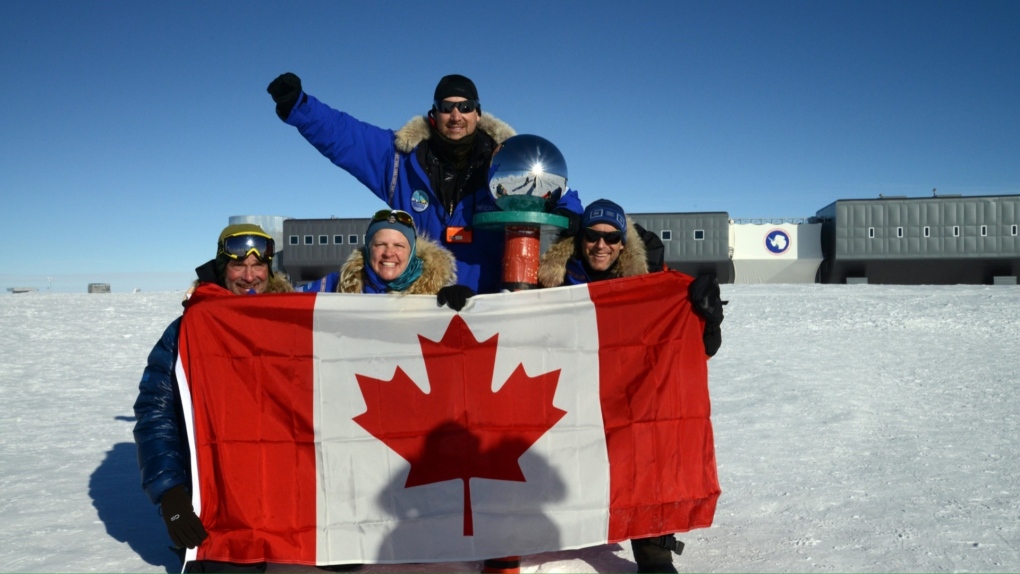Ontario man hopes to become first heart transplant recipient to summit Mount Chimborazo
An Ontario man hopes to become the first heart transplant recipient to reach the summit of a peak in Ecuador.
When Dale Shippam, 71, of Thunder Bay, Ont. was brought to Toronto General Hospital 25 years ago, he feared he was going to die. He was diagnosed with dilated cardiomyopathy and needed a new heart.
"Every day when you go to sleep, you don't know if you're going to wake up," says Shippam. "It was very serious."
- Download our app to get local alerts on your device(opens in a new tab)
- Get the latest local updates right to your inbox(opens in a new tab)
At one point, Shippam went into cardiac arrest.
"We were doing chest compressions in the elevator on our way into the Coronary Care unit. It was like something you might have seen on a TV show, but it truly happened," says Dr. Heather Ross.
And that was Ross's introduction to the patient who would one day become her partner in adventure.
Shippam got his new heart in 1999. Seven years later, in 2006, Ross and Shippam went to Antarctica, marking their first of 10 excursions they would take together.
They explored the North and South poles, biked to Mount Everest's base camp, conquered one of the world's most challenging trails - the Snowman trek in Bhutan - and more.

They will climb Mount Chimborazo during their upcoming journey to Ecuador. Its position along the equator makes it the closest point to the sun on Earth.
During this trek, Ross and Shippam will have to climb during the night hours, in part because the heat of the sun during the day makes the snow soft and prone to avalanches.
How does a 71-year-old man with a heart transplant manage such a high-altitude climb? With good training, good equipment and good teammates, say Shippam and Ross.
With this trip to Ecuador, Shippam is trying to become the first heart transplant recipient to reach an altitude of 6,310 metres.
Like their other excursions, the climb is part of Test Your Limits(opens in a new tab), an organization to raise awareness and funds for cardiac research.
Ross, who heads the Department of Cardiology at the University Health Network, says they've raised about 4 million dollars over the years for pioneering technology to help cardiac patients.
In 2006, when Health Canada had approved but not yet issued funding for mechanical hearts, Test Your Limits helped purchase the device for patients.
"Since that time, Test Your Limits continued to fund innovative and disruptive technologies that can sometimes have difficulties getting traditional funding," says Ross.
This year's climb aims to fund the development of wearable, artificial intelligence-driven devices that can predict cardiopulmonary performance, especially in patients with heart failure.
She points to Shippam as evidence of the progress that research and technology can lead to.
"Dale is just an incredible human, right?" she says. "But it also speaks to the wonders of science."
As for Shippam, his message is simple: "Organ donation works. That's what Test Your Limits is all about."
Must Watch
Top Videos
CTVNews.ca Top Stories

Fall sitting bookended by Liberal byelection losses ends with Trudeau government in tumult
The House of Commons adjourned on Tuesday, bringing an end to an unstable fall sitting that has been bookended by Liberal byelection losses. The conclusion of the fall sitting comes as Prime Minister Justin Trudeau's minority government is in turmoil.
2 B.C. police officers charged with sexual assault
Two officers with a Vancouver Island police department have been charged with the sexual assault of a "vulnerable" woman, authorities announced Tuesday.
Canadian government announces new border security plan amid Donald Trump tariff threats
The federal government has laid out a five-pillared approach to boosting border security, though it doesn't include specifics about where and how the $1.3-billion funding package earmarked in the fall economic statement will be allocated.
B.C. teacher disciplined for refusing to let student use bathroom
A teacher who refused to let a student use the bathroom in a B.C. school has been disciplined by the province's professional regulator.
Most Canadians have heard about Freeland's resignation from Trudeau cabinet, new poll finds
The majority of Canadians heard about Chrystia Freeland's surprise resignation from Prime Minister Justin Trudeau's cabinet, according to a new poll from Abacus Data released Tuesday.
Police chief says motive for Wisconsin school shooting was a 'combination of factors'
Investigators on Tuesday are focused on trying to determine a motive in a Wisconsin school shooting that left a teacher and a student dead and two other children in critical condition.
After investigating Jan. 6, House GOP sides with Trump and goes after Liz Cheney
Wrapping up their own investigation on the Jan. 6 2021 Capitol attack, House Republicans have concluded it's former GOP Rep. Liz Cheney who should be prosecuted for probing what happened when then-President Donald Trump sent his mob of supporters as Congress was certifying the 2020 election.
Wine may be good for the heart, new study says, but experts aren’t convinced
Drinking a small amount of wine each day may protect the heart, according to a new study of Spanish people following the plant-based Mediterranean diet, which typically includes drinking a small glass of wine with dinner.
The Canada Post strike is over, but it will take time to get back to normal, says spokesperson
Canada Post workers are back on the job after a gruelling four-week strike that halted deliveries across the country, but it could take time before operations are back to normal.






























































